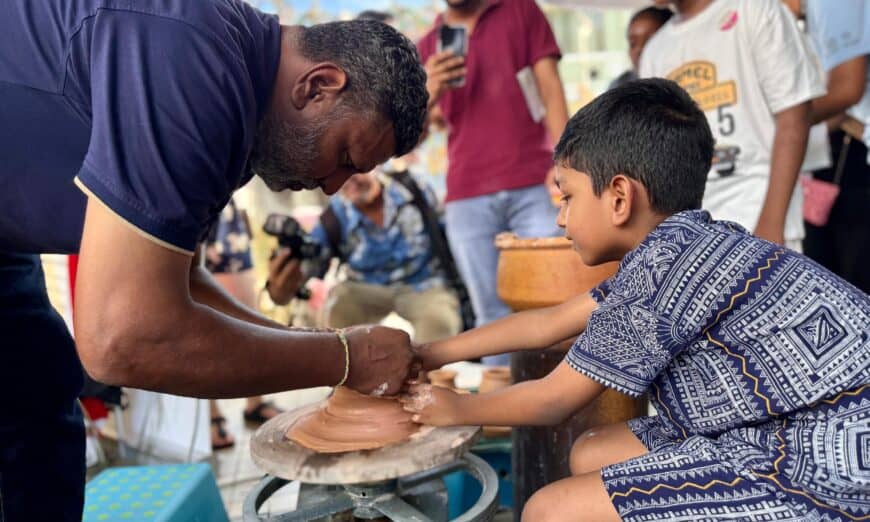BEFORE the advent of refrigerators, how did people keep their vegetables fresh for several days in ancient times?
According to Penang Hindu Association (PHA) vice-president Dr S. Balasubramanim, one traditional method involved using clay pots — humble yet ingenious vessels that not only preserved the freshness of vegetables but also played an important role in daily life.
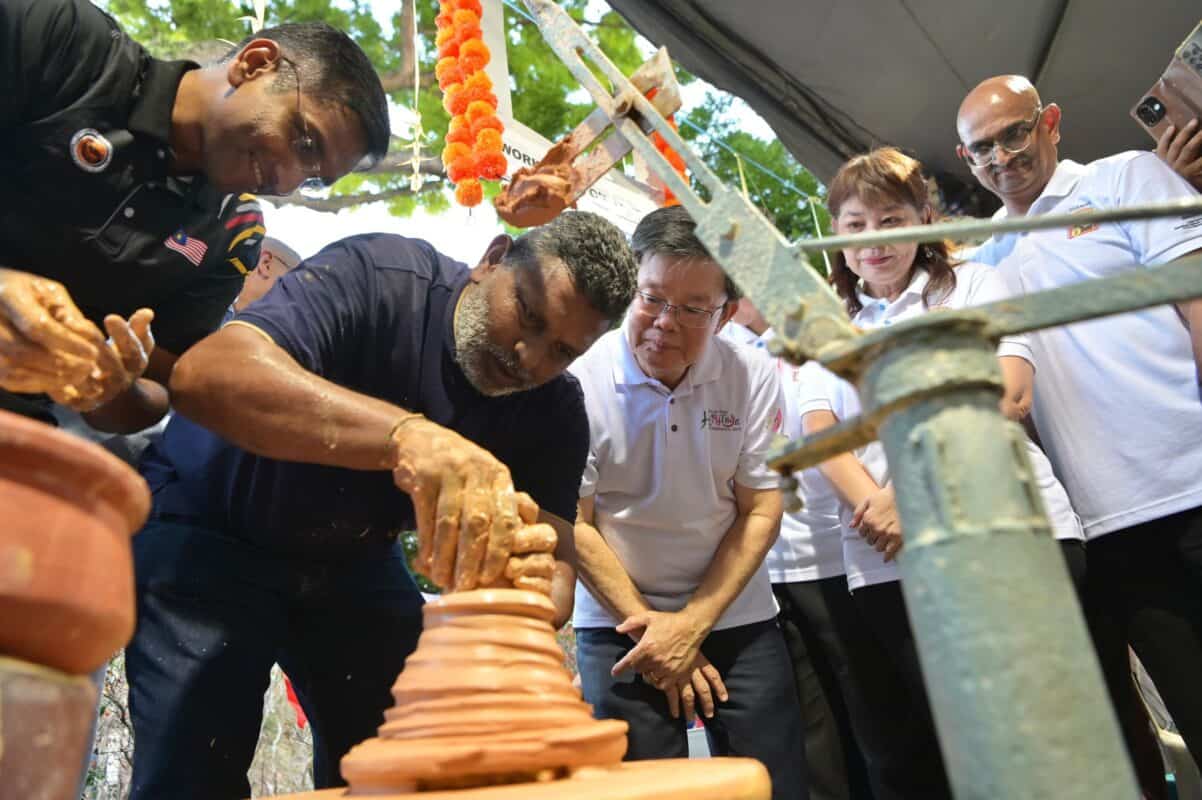
He explained that before storing vegetables in the clay pot, a small amount of water would first be poured into it.
The water would gradually seep through the porous walls of the unglazed clay pot and evaporate from its surface. As the water evaporated, it absorbed heat from the pot and its contents, causing the interior to cool down. This natural cooling effect helped lower the temperature inside the pot and maintain a more humid environment, thereby slowing down wilting and spoilage.
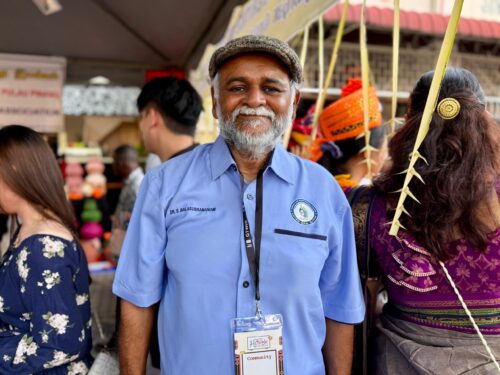
“Clay pots are safe to use, even before aluminium and steel came into the picture. In the old days, we used clay pots for most of our cooking. For instance, during the Ponggal festival, we use a clay pot and firewood to boil milk.
“Clay pots are healthy to use. But the younger generation today prefers modern stoves and non-stick pans,” Dr Balasubramanim said.
However, he lamented that the art of making clay pots is now becoming a dying trade, with only one company in Parit Buntar and two in Selangor still actively involved in the business.
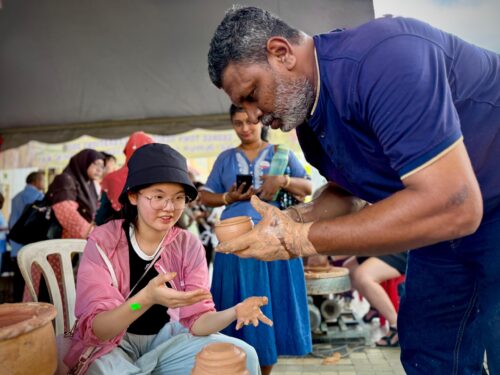
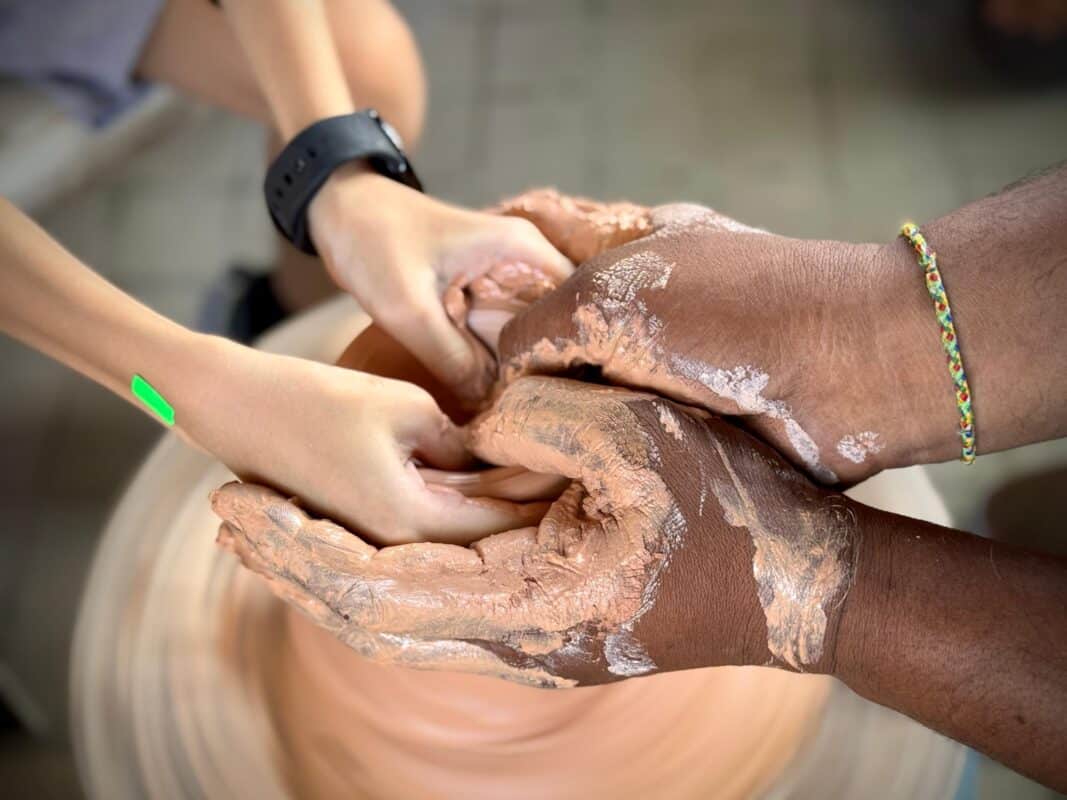
For this reason, PHA president Datuk P. Murugiah said his association held a Clay Festival: The Revival of Pottery Life in conjunction with the George Town World Heritage Celebration on July 5 (Saturday), held at a makeshift stall, named Kitchen, on Jalan Masjid Kapital Keling.
“This is the second time the Penang Hindu Association has held a Clay Festival in the George Town World Heritage Celebration. The first time was in 2017, and it was held on a grander scale. This year, we’ve had to make do with limited space,” Murugiah told Buletin Mutiara during an interview.
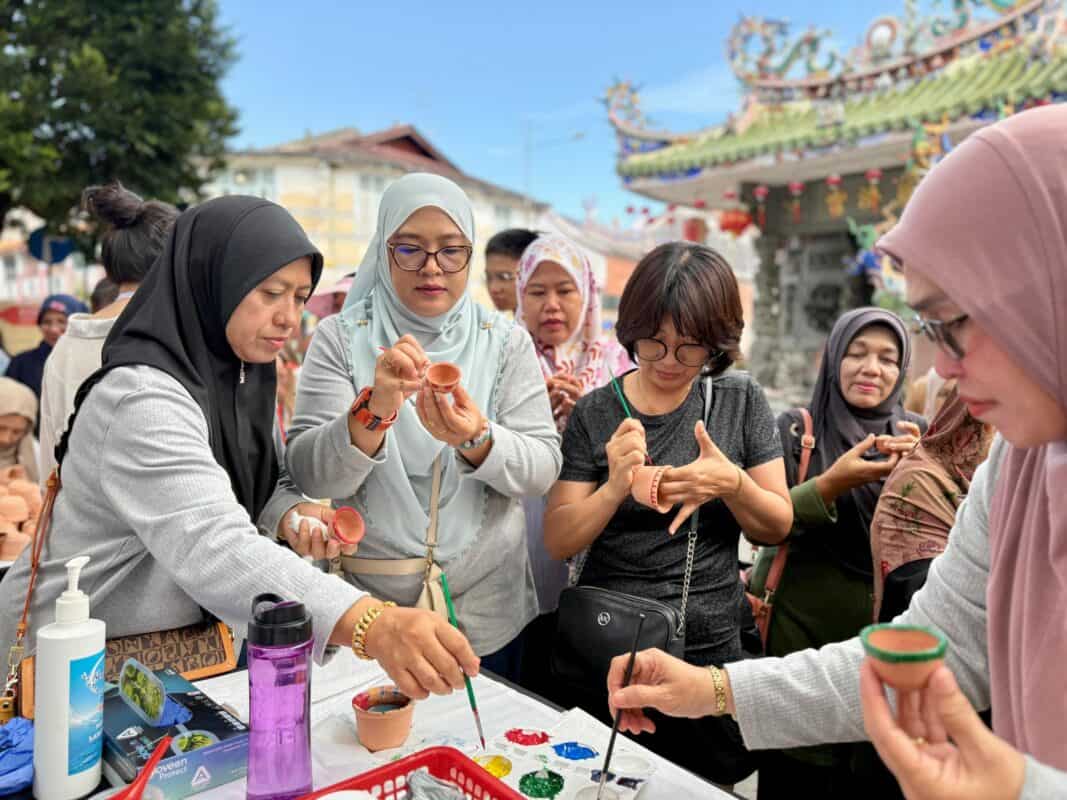
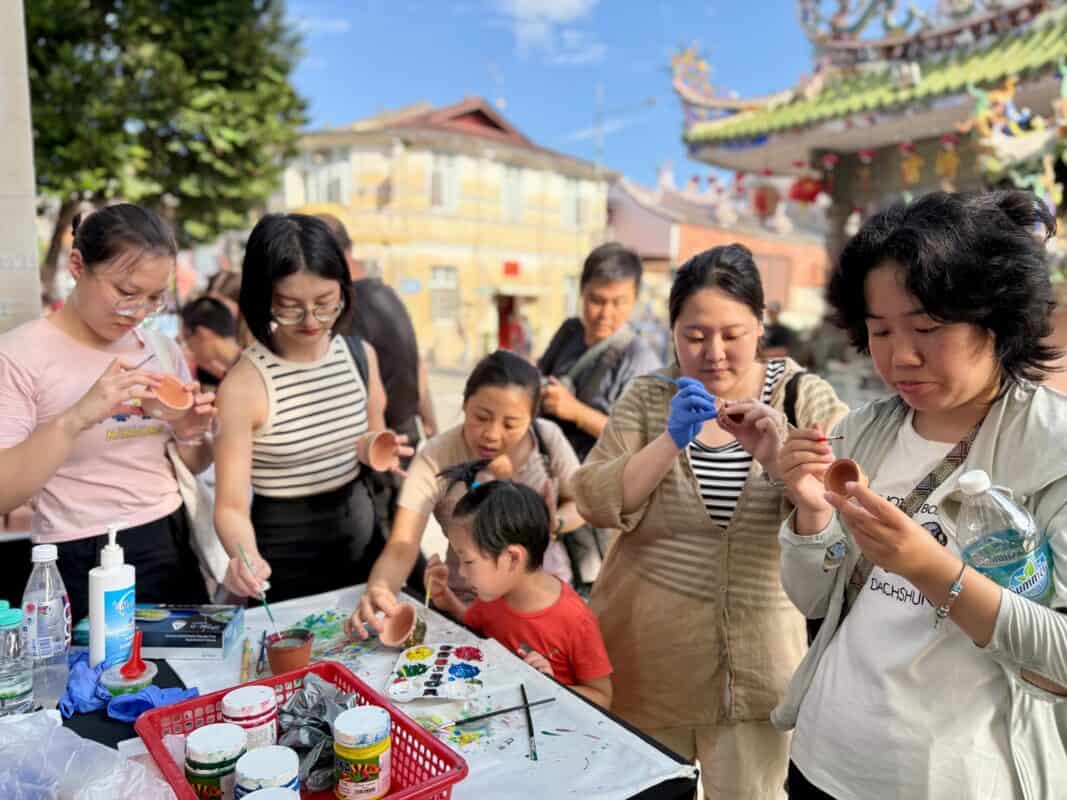
PHA’s booth attracted a steady stream of visitors, many of whom eagerly tried their hands at pottery making. Guided by instructor Reguraj Devaraj, 49, manager of K. Devaraja Pottery from Parit Buntar, Perak, first-time participants found the hands-on experience both fun and fascinating as the pottery wheel spun beneath their fingers. Another worker from the same company also taught the basics at a second pottery wheel.
Visitors were also treated to masala tea served in mini clay cups. Dr Balasubramanim shared that 1,500 mini clay cups were prepared for the event. After enjoying the tea, visitors were invited to rinse and dry their cups before painting on them — an activity that proved especially popular with children.
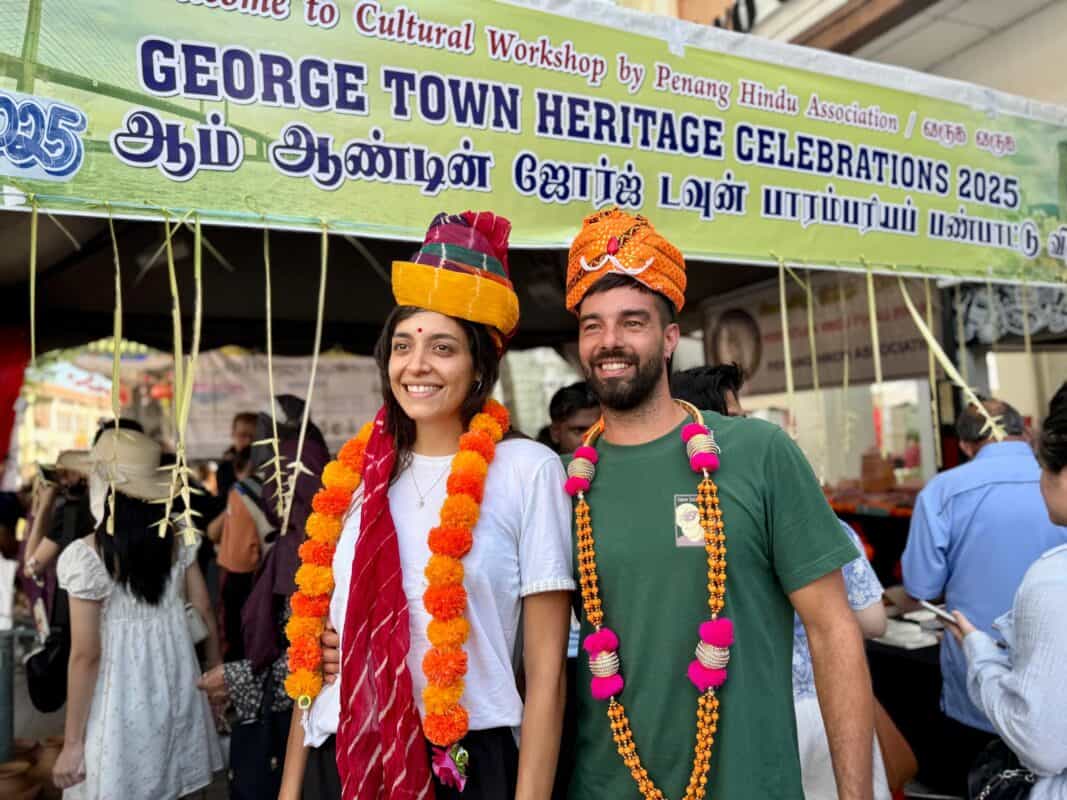
A photoshoot corner within the booth allowed visitors to dress in traditional Indian attire, complete with turbans and garlands, for memorable snapshots.
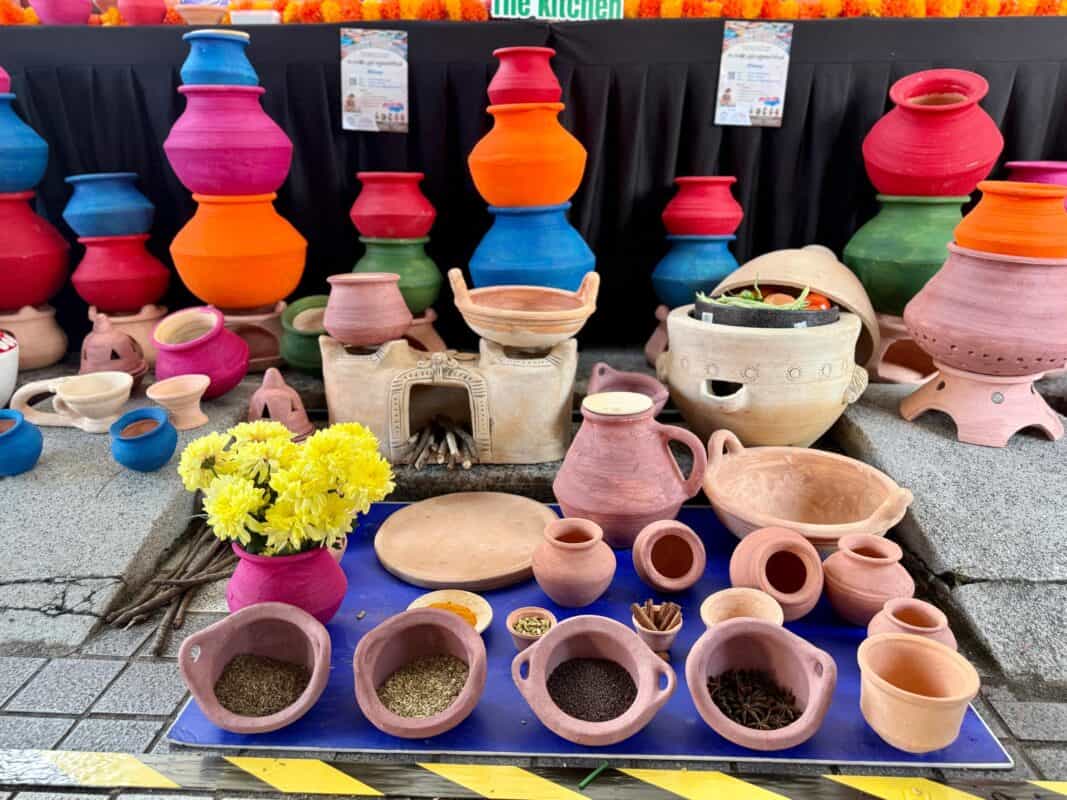
The booth also showcased an array of clay pots in various sizes and vibrant colours — some traditionally used for storing spices and grains, others for cooking and religious rituals, and even for use as musical drums.
The Kitchen booth was abuzz with activity throughout the day, drawing both local and international visitors who were keen to experience the charm of traditional pottery. Among those who visited were Penang Chief Minister Chow Kon Yeow, Tanjung MP Lim Hui Ying, George Town World Heritage Incorporated general manager Dr Ang Ming Chee, Senator Dr R.A. Lingeswaran, Penang Island City Council mayor Datuk A. Rajendran and several state assemblymen, underscoring the importance of preserving traditional arts in modern times.
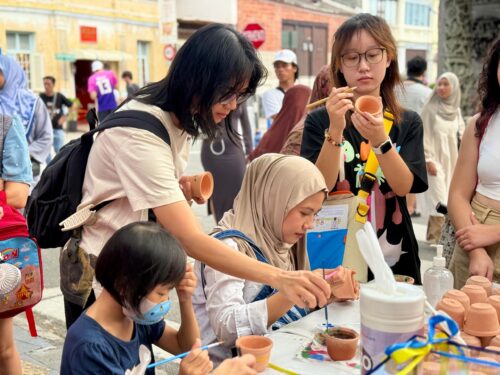
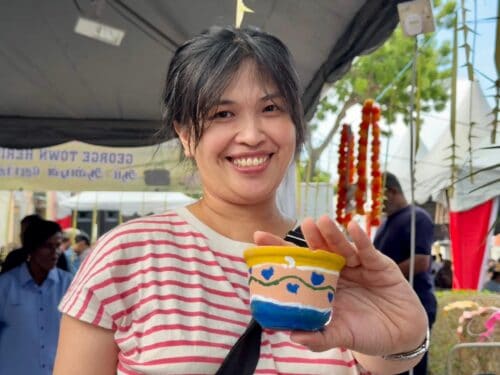
Story by K.H. Ong
Pix by Siti Nuratikah Rahmat

